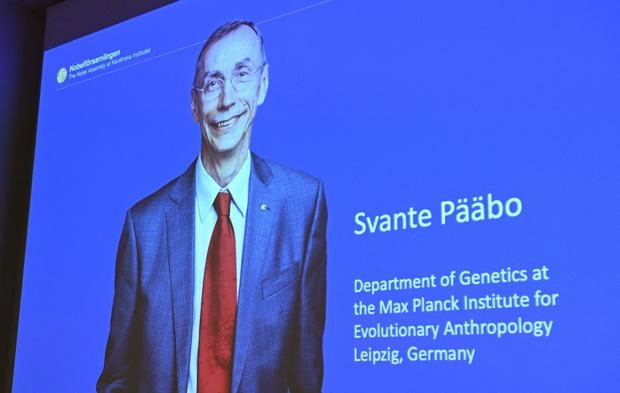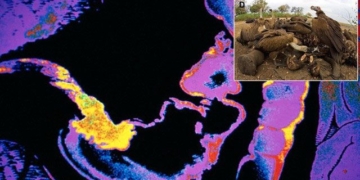Research on the genetic origins of humans by scientist Svante Pääbo earned him the 2022 Nobel Prize in Physiology or Medicine for his discoveries related to human evolution.
Through his pioneering research, Professor Svante Pääbo successfully sequenced the genome of the Neanderthal, an extinct relative of modern humans. He also discovered Denisovans, a previously unknown hominin, from a 40,000-year-old finger bone.
Pääbo’s work also demonstrated gene transfer occurring from extinct hominins to Homo sapiens after migrating out of Africa around 70,000 years ago. These ancient genes are linked to the physiology of modern humans, influencing our immune system and how we respond to infectious diseases.
Additionally, the scientist suggested that modern humans (Homo sapiens) have cognitive advantages over Neanderthals.
The evidence for Pääbo’s findings first emerged in 2010 when he developed methods to extract, sequence, and analyze ancient DNA from Neanderthal bones. This work enabled scientists to compare the Neanderthal genome with the genetic profiles of living humans.
“Pääbo’s sophisticated research has created an entirely new field of science. By revealing genetic differences that distinguish all modern humans from extinct hominins, his discoveries provide a basis for understanding what makes humans unique,” the Nobel Committee stated, adding that these tools could help scientists better understand human evolution and migration history.
The 67-year-old Swedish scientist will receive an award worth over $900,000 from the Nobel Committee, presented in December.
Pääbo has been the Director of the Max Planck Institute for Evolutionary Anthropology in Leipzig, Germany, since 1997 and is an Honorary Researcher at the Natural History Museum in London, England.
His father, Sune Karl Bergström, was a biochemist who also received the Nobel Prize in Physiology or Medicine for his research on prostaglandins, unsaturated fatty acids in tissues. These compounds act as chemical mediators of inflammation and pain perception, as well as having physiological effects in specific tissues.

The name of scientist Svante Pääbo was announced by the Nobel Committee on October 3. (Photo: AFP).
This year’s notable candidates for the Nobel Prize in Physiology or Medicine span various fields, including research on mRNA technology in COVID-19 vaccines, uncovering the genetic basis of diseases, and microfluidic techniques applied in cell separation.
The laureate will receive a Nobel certificate, a Nobel medal, and a cash prize of 10 million Swedish kronor (over $900,000) on December 10. Scientists often have to wait decades for their work to be recognized by the Nobel Prize Committee.
In 2021, the Committee awarded two American scientists, David Julius and Ardem Patapoutian, for their discoveries related to temperature and touch. Both received the prize for “significant findings concerning the mechanisms of temperature and touch sensation.” Their work shed light on chronic and acute pain related to various diseases, injuries, and treatment methods.
Since 1901, the Committee has awarded a total of 112 Nobel Prizes in Physiology or Medicine. The youngest laureate ever was scientist Frederick G. Banting, honored at the age of 32 for discovering insulin. The oldest was Peyton Rous for his discovery of the virus causing tumors, announced in 1966 at the age of 87.
- Prominent candidates for the 2022 Nobel Prize in Physiology or Medicine
- Three scientists awarded the 2022 Nobel Prize in Physics for quantum research
- Research on molecules wins the 2022 Nobel Prize in Chemistry
- French author wins the 2022 Nobel Prize in Literature
- The Pacific “is about to” disappear, a new supercontinent is emerging
- Unraveling the mystery of the race of ancient Egyptians


















































